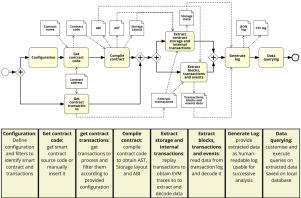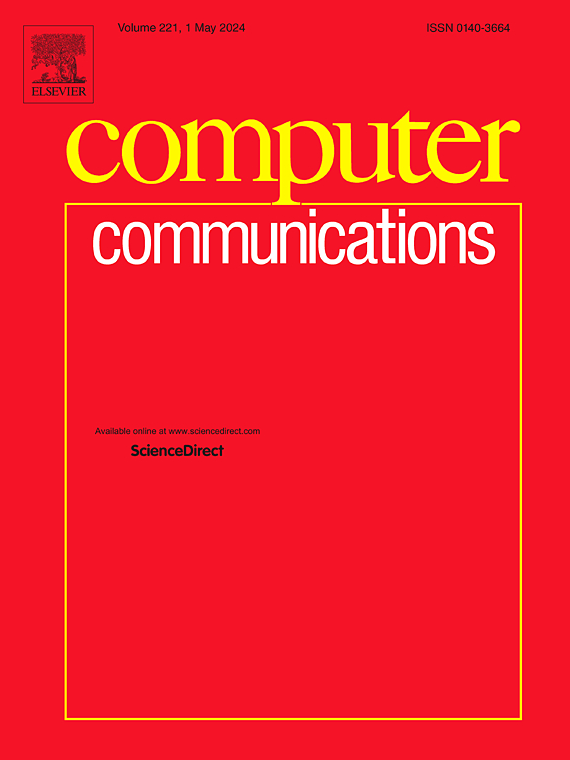一种提取和解码智能合约数据的方法
IF 4.3
3区 计算机科学
Q1 COMPUTER SCIENCE, INFORMATION SYSTEMS
引用次数: 0
摘要
区块链技术已被广泛应用于提高大规模普适系统中智能应用的安全性和分散性。在这种情况下,数据提取是至关重要的,因为它提供了对系统行为的更好理解。然而,由于数据源的多样性,例如事务、事件、契约存储和区块链结构的复杂性,在自动提取数据时出现了一些挑战。特别是,检索智能合约状态变化仍未被探索,尽管它可能用于发现意外行为。因此,在这项工作中,我们提出了一种新的方法和支持应用程序来提取智能合约状态变化和其他与执行相关的数据。然后对获得的数据进行解码,并以易于重用的标准格式提供。该方法提供了额外的功能,如事务过滤和查询提取数据的功能。该方法的有效性和性能在来自不同基于evm的区块链的三个现实世界项目中进行了评估。本文章由计算机程序翻译,如有差异,请以英文原文为准。

A methodology for extracting and decoding smart contracts data
Blockchain technology has been widely adopted to enhance the security and the decentralisation of smart applications in large-scale pervasive systems. In such a context, data extraction is crucial as it provides a better understanding of the system’s behaviours. However, several challenges arise in automatically extracting data, due to the variety of data sources, such as transactions, events, contract storage, and the complexity of the blockchain structure. In particular, retrieving smart contract state changes remains unexplored despite its potential usage for discovering unexpected behaviour. For such reasons, in this work, we propose a novel methodology and a supporting application for extracting smart contract state changes and other execution-related data. The obtained data is then decoded and offered in a standard format to be easily reused. The methodology provides additional functionalities such as transaction filtering and capabilities for querying over extracted data. The effectiveness and the performance of the methodology were evaluated on three real-world projects from different EVM-based blockchains.
求助全文
通过发布文献求助,成功后即可免费获取论文全文。
去求助
来源期刊

Computer Communications
工程技术-电信学
CiteScore
14.10
自引率
5.00%
发文量
397
审稿时长
66 days
期刊介绍:
Computer and Communications networks are key infrastructures of the information society with high socio-economic value as they contribute to the correct operations of many critical services (from healthcare to finance and transportation). Internet is the core of today''s computer-communication infrastructures. This has transformed the Internet, from a robust network for data transfer between computers, to a global, content-rich, communication and information system where contents are increasingly generated by the users, and distributed according to human social relations. Next-generation network technologies, architectures and protocols are therefore required to overcome the limitations of the legacy Internet and add new capabilities and services. The future Internet should be ubiquitous, secure, resilient, and closer to human communication paradigms.
Computer Communications is a peer-reviewed international journal that publishes high-quality scientific articles (both theory and practice) and survey papers covering all aspects of future computer communication networks (on all layers, except the physical layer), with a special attention to the evolution of the Internet architecture, protocols, services, and applications.
 求助内容:
求助内容: 应助结果提醒方式:
应助结果提醒方式:


